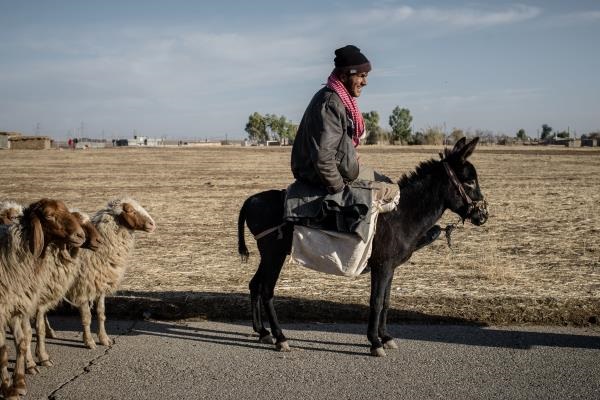
19 January 2017, Rome - Belgium, a long-time supporter of FAO's work in emergencies, has deepened its commitment to protecting agriculture in countries struck by disaster with a €14-million contribution. This boosts FAO and its member countries' capacity to respond immediately to disasters and crises, and to strengthen the long-term resilience of vulnerable farmers and herders.
The lion's share of the contribution is aimed at building farmers' ability to withstand shocks through multi-year programmes - an innovative approach to funding humanitarian responses. Commonly, humanitarian projects are funded in six-months or one-year cycles, leaving limited time to rehabilitate agriculture production and to improve risk-sensitive practices.
These longer-term project cycles are particularly important for agriculture, as they allow support through multiple seasons and harvests. They were among the recommendations of the 2016 World Humanitarian Summit, which focused on reducing human suffering and delivering better aid for people facing crises around the world.
"We strongly appreciate Belgium's efforts to "walk the talk" of the World Humanitarian Summit by providing flexible and multi-year humanitarian funding," said Dominique Burgeon, Director of FAO's Emergency and Rehabilitation Division and Strategic Programme Leader for Resilience. He added that, "Belgium's donation recognizes the critical role that farming plays in the lives of millions around the world."
"Saving agriculture livelihoods helps people affected by a crisis in a sustainable way and allows them to stay on their land if they feel safe enough to do so," said Bruno van der Pluijm, Director-General for Development Cooperation and Humanitarian Aid.
Among the crisis areas benefiting from the Belgium funding are the Sahel (€ 4 million), Mali (€ 2 million), Haiti (€ 3 million) and Iraq (€ 2 million). Another € 3 million went to FAO's Special Fund for Emergency Activities (SFERA). The latter allows FAO to release money quickly for rapid on-the-ground interventions - even before an emergency appeal is launched - when natural disasters or conflicts threaten the livelihoods, food security and nutrition of farming families.
Belgium's support to SFERA is critical for rapid distributions of cereal and short-cycle quality vegetable seeds, which are often part of FAO's emergency interventions. These ensure that communities struck by crisis don't miss the upcoming planting season and are able to grow food fast and recover their livelihoods.
Protecting valuable livestock with emergency feed and vaccinations is another important early action in many crises, so animals continue to provide protein, milk and income to pastoralist communities. In conflict zones, supporting backyard gardening, with poultry and small crops, and fishing activities are also essential lifelines for families forced to abandon their land or who have limited access to functioning markets. A new FAO publication, Partenariat humanitaire FAO-Belgique [in French], illustrates some of the most successful agriculture emergency interventions across the world.
Its latest contributions places Belgium among FAO's top 10 humanitarian donors.
FAO, together with the UN's Office for the Coordination of Humanitarian Affairs (OCHA) and the Norwegian Refugee Council, is undertaking a study on the effects of multi-year financing and will use Belgium as an example of best practice in international aid.